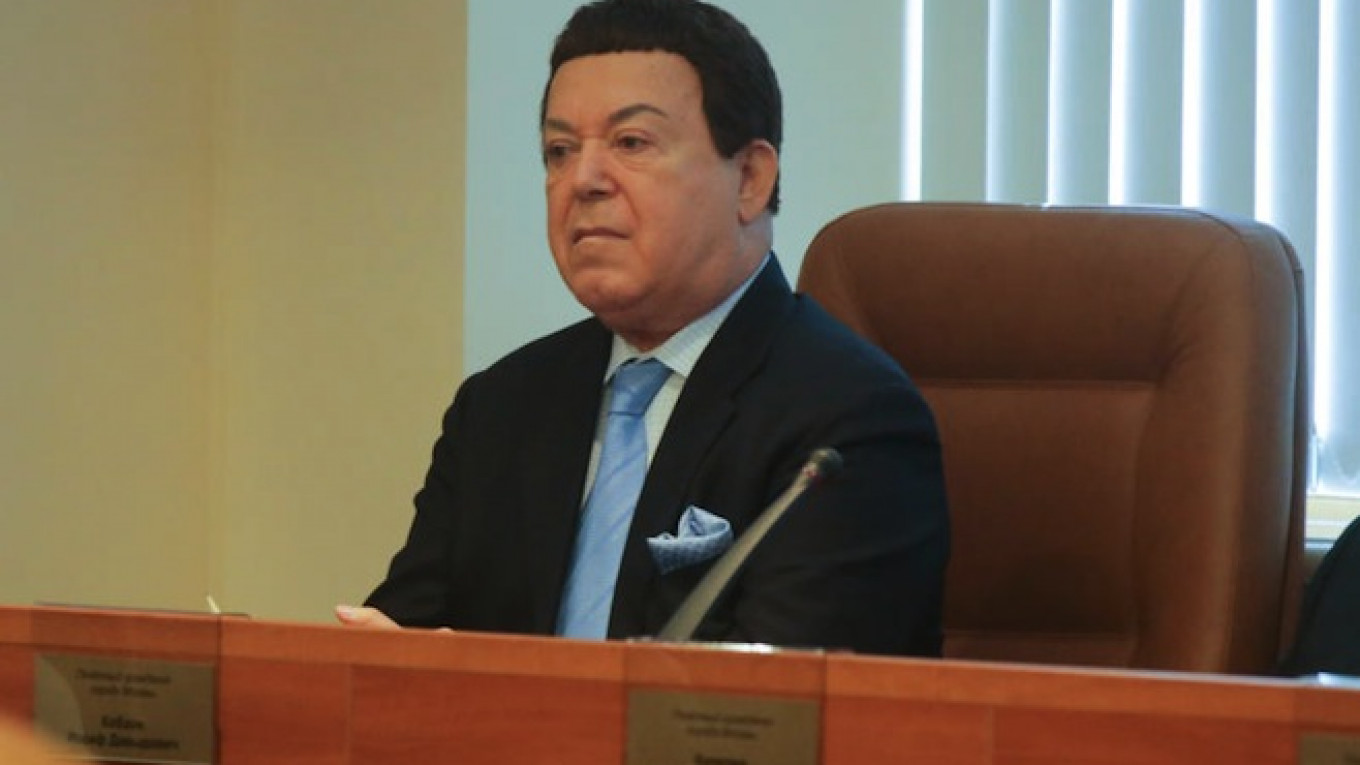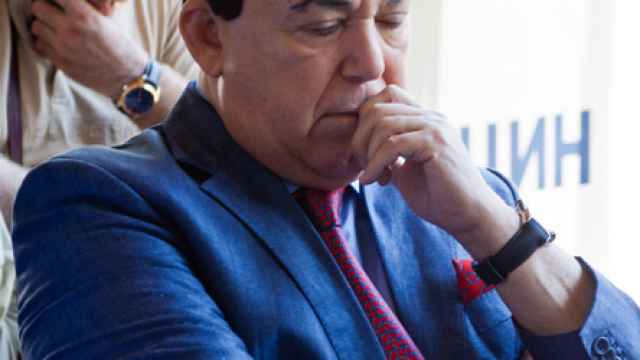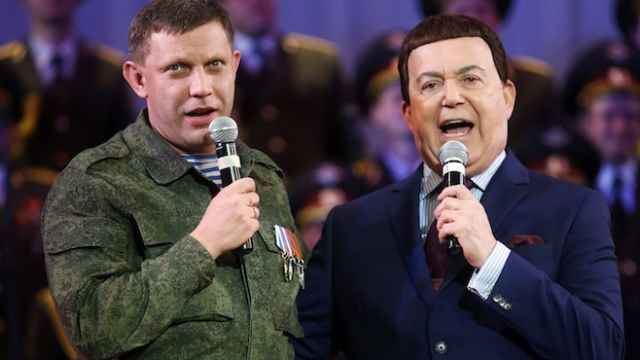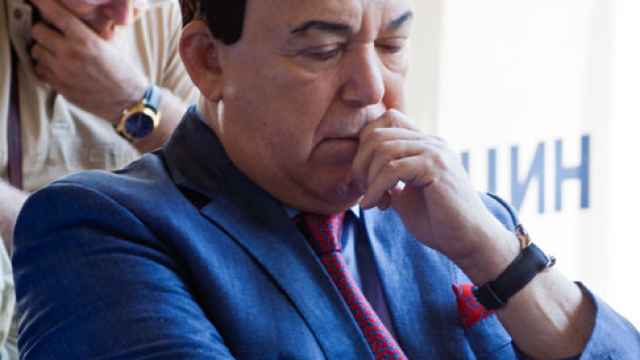The prospect of controversial Russian crooner and longtime State Duma deputy Iosif Kobzon getting Russian President Vladimir Putin to lift the U.S. and EU entry ban on him for medical treatment divided Russian society this week.
Kobzon, 78, who is well known for his pro-Kremlin position and support of Crimea's annexation, was barred from the U.S. several years ago for his alleged connections to Russian organized crime gangs. In February this year he was barred from entering the EU under sanctions adopted against Russian officials over the country's role in the Ukraine conflict.
The singer, who has suffered from prostate cancer for several years and who had an operation in Germany several years ago, said this week that he was not ruling out seeking further help from abroad, despite his travel bans.
"If I'm recommended by doctors to undergo surgery in a country that has sanctioned me, I think I'll appeal to the president and he will help me," Kobzon said during an online conference with the readers of Moskovsky Komsomolets newspaper Tuesday.
The statement sparked outrage and debate on the Russian blogosphere and social networks.
According to a survey conducted by Ekho Moskvy opposition-leaning radio station, 82 percent of Russians said Kobzon shouldn't be allowed to go abroad for treatment. Some said that having to rely on Russian medical care was a just punishment for a deputy who helped pass so many controversial laws, including a ban on the adoption of Russian orphans by U.S. families.
“He had the opportunity to take pity on us and make our lives better, but he didn't do it. He is getting exactly the same as he gave us,” Mitya Aleshkovsky, a prominent Russian blogger and charity activist, wrote on his Facebook page Wednesday.
“So let him be treated in the Kashirka oncology center [the Blokhin Russian Cancer Research Center located on Moscow's Kashirskoye Shosse]. That's the best punishment for all the suffering he and other [State Duma] deputies have brought on us,” Aleshkovsky concluded.
Others argued Kobzon was simply an old man who is scared by his illness and of dying from it.
“No one, even Kobzon who is involved in the deaths of children, should be denied medical treatment,” Yevgeny Feldman, a well known photographer for Novaya Gazeta newspaper, wrote on Twitter on Wednesday, apparently referring to reports of ill children whose planned adoption by U.S. parents was canceled under the ban, and with it their chance of treatment.
Kobzon himself denied that there had been any formal appeal to Putin in an interview with Komsomolskaya Pravda radio station Thursday.
“I met with the president [on June 24], and he told me that if medical help abroad was necessary, I should ask him for help and he would definitely help me,” he was cited by the radio station as saying.
A Message from The Moscow Times:
Dear readers,
We are facing unprecedented challenges. Russia's Prosecutor General's Office has designated The Moscow Times as an "undesirable" organization, criminalizing our work and putting our staff at risk of prosecution. This follows our earlier unjust labeling as a "foreign agent."
These actions are direct attempts to silence independent journalism in Russia. The authorities claim our work "discredits the decisions of the Russian leadership." We see things differently: we strive to provide accurate, unbiased reporting on Russia.
We, the journalists of The Moscow Times, refuse to be silenced. But to continue our work, we need your help.
Your support, no matter how small, makes a world of difference. If you can, please support us monthly starting from just $2. It's quick to set up, and every contribution makes a significant impact.
By supporting The Moscow Times, you're defending open, independent journalism in the face of repression. Thank you for standing with us.
Remind me later.






